- Home
- P. T. Deutermann
Trial by Fire Page 2
Trial by Fire Read online
Page 2
Two weeks to go, the yard’s ship superintendent had told this morning’s meeting, George remembered. We’ll have you out of the drydock and starting your onload in two weeks, guaranteed. No way in hell, George remembered thinking. He could see that Billy was thinking the same thing. The hangar deck was almost 700 feet long, and there wasn’t anywhere that was not covered in metal pipe-staging and crawling with shipyard workers. The only good news was that there was no longer much evidence of what that suicide plane had done to Franklin. Nor were there any signs of the fifty-eight men who’d died during that attack. George could still visualize all those blackened lumps scattered everywhere in the hangar once they’d put the fires out.
“Isn’t that the captain?” Billy asked, pointing with his chin.
George looked. Had to be, he thought. The captain was a big boy, so big everyone wondered how he’d ever squeezed into a fighter plane’s cockpit. He was a burly six-five, with a round face, permanently wavy hair, and a cleft, double chin. He was big enough that anyone he encountered when going through one of the ship’s passageways had to flatten himself against a bulkhead and inhale so the captain could squeeze by. He was also one of those big guys who gave off the aura of “move aside or I’ll walk right over you.” He’d taken a reduction in rank, from commodore back to captain, in order to get command of Franklin. Given his obvious disdain for the ship’s company, everyone kind of wondered why. One of the chiefs had summed it up neatly: this new skipper has a perpetual red-ass.
George, the one officer who spent the most time with the captain, couldn’t argue with that, but he also could not permit that sentiment to be voiced out loud. If the captain sensed that the crew didn’t like him, he gave no sign of it. George suspected that he had become accustomed to being someone whom nobody liked very much, but right now, there he was, standing conspicuously amid the frantic repair efforts surrounding him, his two Marine orderlies at parade rest close by, and radiating his displeasure. Interestingly, George observed: there wasn’t a single crewmember within fifty feet of him. When the captain saw George and Billy-B, he beckoned imperiously.
“Oh, great,” Billy muttered, through clenched teeth.
George almost laughed. Almost—the captain was still looking right at the two of them. “C’mon, there, Air Boss,” he said, finally. “This is your fault, after all.”
Billy strangled a laugh, and over they went. The first thing the captain said was: “About time, XO.”
“Sir?” George replied in as neutral a tone as he could manage.
“Look at this mess,” the captain said, having to shout to make himself heard above the clamor of the repair efforts. “They’re getting nowhere. What are you doing about that?”
“The ship’s supe says they’ll be done in two weeks, Captain,” George pointed out.
“Bullshit!” the captain said. “Nothing’s finished. They’re falling all over each other and they’re getting nowhere. And where the hell are our people? They just sitting back, watching this circus?”
“Our people aren’t allowed to interfere with the shipyard’s workers, Captain,” George said. “They can help, but only if they’re asked to. So far, none of the shops’re asking, and because of that, I’ve got them in training in other parts of the ship. We’ve got a lot of boots on board now.”
The captain peered down at his exec in total frustration. His hands, which were disproportionately small compared to the rest of him, were clenched into sweaty fists. He’d been furious when he’d learned of the scale of the transfers when Franklin had first arrived at the Puget Sound Naval Shipyard in Bremerton. That had been the exec’s fault, of course: “Goddammit, XO, why didn’t you protest? They’re taking all the experienced hands.” It had become a familiar theme: Do something, XO. Don’t just sit there. George, of course, had had to swallow the obvious retort: You’re the captain—why don’t you do something? You draw a whole lot more water than I do as exec.
“What kind of training?” the captain asked, still shouting. George was tiring of being yelled at, but then remembered it was because of all the noise, and, like many aviators, the captain probably was more than a little bit deaf. He noted that Billy-B had somehow managed to move away, taking a sudden interest in the newly installed hangar deck firefighting stations. George could just hear Billy’s thinking: You’re the lofty executive officer. Second in command, and all that. You deal with him, while Boss, here, makes his creep.
“Well, sir,” George said, “for starters, how to find their way around the ship. Basic stuff—where’s the messdecks, where are their berthing compartments. Where are their watch-stations and their GQ stations. How to get from one to the other. A whole lot of them’re either boots or rated men who’ve never been on a carrier. I thank God we’ve got two weeks. I’d take two months if I could.”
“Well, you can’t,” the captain said. “And I won’t, got it? We’re coming out of dock in two weeks? Okay, I’ll take your word for that. But then we’re going to sea. And if people need training, I’m just the sonofabitch to provide it. Meantime, I want you to stay on these yardbirds, XO. Stay on ’em like stink on shit. There’s a big war on, and Franklin’s gonna be there when we win it, not back here in this shithole called Bremerton. Got it?”
“Absolutely, Captain,” George said.
The captain gave George an encouraging glare and then stalked off, headed forward, probably to see just how far this ineffectual “circus” extended. George saw crewmen dematerializing into the industrial haze when they saw him coming. God, he thought. This is gonna be a long cruise.
The captain had risen from the enlisted ranks to a commission and was now the first mustang, as formerly enlisted officers were sometimes called, to command a carrier. George thought he was nothing if not full of himself. He’d been a fighter pilot, squadron XO and CO, and had been promoted to the temporary rank of commodore when he took command of the Aleutians defense forces. He’d had to take a step back in rank to captain in order to gain command of Franklin. George could understand the new CO’s dismay at being handed a seriously damaged ship, but the conventional reaction to that situation in the fleet was things could only get better, so get on with it and quit your complaining.
The kamikaze had hurt Franklin badly. He’d brought a 500-pound bomb with him and, between his plane hitting the ship’s wooden, unarmored flight deck at 400 miles per hour and that bomb going off just below the gallery deck, fifty-eight men died and more than thirty were wounded, most with horrible burns. The hangar bay deck, made of steel and reinforced with two and a half inches of armor, had held, but flaming aviation gasoline got into an ammunition trunk and spread fire everywhere. The ship’s own firefighting efforts had put enough water belowdecks to give her a three-degree list. George thought the shipyard had worked wonders, given the scope of the damage, although, even if they were working three shifts around the clock, he did wonder about that two-weeks’ prognostication.
Adding to the workload were all the modifications ordered by the Bureau of Ships back in Washington. Improved radars, a significant increase in the number of AA guns along the flight deck, a second catapult forward, a change in the incoming air group’s fighter-bomber mix, which meant heavier and more powerful airplanes, beefed-up fire-suppression systems controlled by a new conflagration control station above the hangar deck, and a division of the hangar bay into three sectors, with fire curtains to make sure a big fire didn’t turn into a ship-sinking fire. Firefighting systems along the flight deck were also being expanded, and fifty-foot-long hoses were being replaced with one-hundred-foot hoses. Franklin was nearly 900 feet long and displaced close to 36,000 tons when fully loaded. Even so, when all the additional modifications were made, the Bureau had expressed concern about her stability due to all the additional topside weight. As large as she was, Franklin would probably capsize if hit by two or more Jap Type-93 torpedoes with their enormous warheads. The truth was they didn’t have a choice. The Divine Wind was upon them and Franklin would
need every single AA gun she had to deal with that grotesque threat.
George looked around for Billy and saw that he’d succeeded in disappearing into the industrial swirl, whose noise was beginning to hurt his own ears. He decided to go back to his office, where there were three in-baskets’ worth of paperwork waiting for his “immediate and urgent” attention. Conversation was difficult in the ship’s office, as his lair was called, because of the noisy repairs going on throughout the gallery deck. It was 1630, and George longed to get off the ship and back to his BOQ room ashore, where a bottle of good Scotch was calling to him. But—he had to at least shuffle through the baskets of paperwork to make sure there were no painful surprises lurking. It was better that he found out about problems before the captain did. Between incoming naval action messages and the official mail, all of which theoretically went through the XO before going to the captain, George spent at least four hours out of every working day on paperwork. Like most aviators, he absolutely hated it. Having been both XO and CO of a torpedo bomber squadron, he’d learned how to prioritize it, but the endless paperwork was the bane of his existence.
The ship’s paperwork had a bastard child, the new captain’s buzzer. Captain Shoemaker had used the ship-wide sound-powered phone system when he wanted to talk to someone. The phone would squeak and there he’d be, calling you by your first name or title, in George’s case, XO, with a question or some news. The new captain had had a one-way buzzer system installed that connected to George and the department heads. When that thing went off, one was expected to drop what he was doing and immediately pick up the separate handset, painted red to denote its importance. George had accidentally discovered that the department heads were beginning to experiment with a selective response to the detested buzzer. They’d simply get up and go somewhere else when it went off in their cabins or offices. Sorry, Captain, I must not have been there when you called. It wasn’t a surprising development, given the captain’s abrasive if not downright abusive demeanor, but George had been struggling to decide what to do about it, because if the captain couldn’t raise one of the department heads, he’d of course buzz George.
He looked over at the framed picture on his desk of Karen Brooke, the lady doctor he’d met after completing his command tour and reporting aboard Franklin as the commissioning XO. She was a plastic surgeon at the naval hospital in Portsmouth, Virginia, close by the shipyard where the brand-new Franklin had been fitting out. He’d met her at a reception given by the naval district’s commandant for the Franklin’s wardroom at the Portsmouth officers’ club. She’d been with an older-looking three-striper who was wearing medical corps sleeve insignia and pontificating about something very important when their eyes met and George convinced himself she was sending an SOS signal, so he’d moved right in. Minutes later they were at the bar.
“Gonna call you Swoop,” she’d said, with a smile. “And thank you very much, kind sir.”
That smile tickled George’s backbone, and for once he was at a loss for words. Karen was petite, very pretty with dark hair, bright blue eyes, and filling out her uniform in all the right places. As George remembered, he’d managed to mumble something. They’d seen each other several times after that, but it had been difficult. She was a junior surgeon at a major naval hospital and he was the second-in-command of an aircraft carrier coming to life for the first time in the early spring of 1944. By late May they’d become close friends, but when Franklin left for the West Coast and the final drive on Japan, they’d made no promises. George had been a dedicated bachelor up to that point, but he’d found himself thinking the unthinkable every time he was around Karen.
Now, in January of 1945, they’d been corresponding by wartime mail much like many husbands and wives were doing. George was the chief censor for all outgoing mail in the ship, with a little help from the three chaplains embarked, so he couldn’t tell her anything about what they were doing or where, which meant that letters tended to focus on personal feelings. It proved to be a surprisingly good way to establish a relationship. Once the ship came back for repairs, they’d talked about her coming out to the West Coast while Franklin was in the shipyard, but reality had intervened. George was busier than the fabled one-armed paper-hanger, overseeing the repairs and modernization projects, while Karen, being a relatively new surgeon, was buried under her hospital workload with burns cases courtesy of the casualty load from Europe. It was generally assumed that Germany was on the ropes, but apparently no one had informed the Germans, so the fighting was fierce. Besides, the cross-country train ride alone would have taken ten days, round trip. George had been given a room at the shipyard BOQ when Franklin first arrived, so now they made do with a weekly phone call over a hallway pay phone. He found himself living for those quiet phone calls and the sound of her voice.
George had grown up in Boston, the son of a prominent dentist. He’d graduated from the Naval Academy in 1928, done his mandatory two years of sea duty on a battleship, and then volunteered for flight school and the newly developing naval air arm. By 1939 he was a flight instructor at Pensacola, where the Navy was transitioning to a new generation of fighters, dive bombers, and torpedo bombers. He was tall for an aviator, nearly six feet, with a shock of black hair and heavy eyebrows, and a genial smile on his face. He’d stayed single mostly because he enjoyed his Navy career and saw little point in pursuing a family, given what he did for a living. Karen had complicated that notion, but the war made it easy for both of them to put off any big plans or decisions.
The captain’s buzzer flattened his memories.
“Yes, sir?” he answered.
“I want to see you and the chief engineer in my cabin,” the captain said. “Now would be nice.”
“Aye, aye, sir,” George said, and hung up the handset. Now would be nice—why did he have to say crap like that? He told one of the yeomen in his office to find Lieutenant Commander Walt Forrest, the chief engineer, and give him the good news. So much for a Scotch at the BOQ, he thought.
2
Lieutenant John Ryan McCauley, USN, the Franklin’s fire marshal and assistant damage control officer, stood in the almost-finished hangar-deck conflagration control station with Marty Hanlon, the lead electrician from the yard’s Shop 51 (Electrical). He was known to his shipmates in the engineering department as J.R. He was an Academy graduate, twenty-eight years old, and born in Havana, Illinois, into a family of six kids. He had reddish hair, blue eyes, and an unmistakably Irish face. He was a surface ship officer who’d served six years in destroyers before being assigned to the engineering department of the brand-new USS Franklin commissioning crew. The Navy had offered him a career designator change to become an engineering-duty-only officer, but he hadn’t made up his mind about that. If he stayed in the surface line, he could one day rise to command at sea; EDOs couldn’t do that.
“This is quite something,” he said, looking around at all the control panels. The station was built like an airport control tower. It had slanting square reinforced glass windows and was mounted high up on the underside of the gallery deck. “We’ll be actually able to see the problem now.”
Hanlon nodded. “As long as the problem ain’t right underneath, you will,” he replied. “Then this’ll become an oven.”
“Yeah,” J.R. acknowledged. “Except, before this, I had to wait down in DC Central for reports from people actually on the hangar deck to even know what was going on. Now we can act a whole lot faster. Is there an operating manual for all these controls?”
Hanlon shook his head. “I can get you the wiring diagrams for the installation, but you guys are gonna have to write your own manual.”
J.R. groaned. That meant he was going to have to write a manual, which meant that he would have to learn the controls himself first. He asked Hanlon for a quick tour.
“This one here is the water curtain panel,” Hanlon began. “As long as there’s pressure in the fire-main system, these four handles will activate all four water curtains, or whichev
er ones you want individually. They send an electrical signal to hydraulically operated gate valves in the overhead, which then pressurize the manifold. The deluge sprinkler heads don’t have valves, so: you pressurize that manifold, you get Niagara Falls on demand.”
The 700-foot-long hangar deck was theoretically separated into three bays for damage control purposes. It wasn’t a physical, steel separation, but three sectors in the overhead, or ceiling, that contained deluge sprinkler systems to isolate really big fires.
“And if that system doesn’t work, can those gate valves be opened manually?”
“Three men and a boy might could do it,” Hanlon said, lighting up a cigarette. “But those are six-inch gate valves with a hundred twenty-five psi on one side of the gate. That’s a force of some three thousand pounds they gotta overcome. You’d prolly want to mount some six-foot-long crow’s feet nearby.”
McCauley pulled out his little green pocket notebook and wrote the word “crow’s feet” in it. He knew that a crow’s foot was a homemade, three-pronged, long-handled wrench that could fit horizontally through the spokes of a gate valve’s operating wheel to give additional leverage when trying to open or close it. They were technically unauthorized, but every engineering department afloat had a stash of them for valves that were known to be balky.
Hanlon continued the tour, moving to a small panel to the right of the water curtain controls. “This right here can air-start the two emergency fire pumps in case fire-main pressure starts coming down, but somebody would still have to physically open their discharge valves to put ’em on the line.”
“Those spaces are manned at GQ,” J.R. said. “But I’d’a thought the discharge valves would have remote controls, like the water curtains.”
Hanlon shrugged. “Well, they don’t,” he said. “Somebody at BuShips saving a buck or two, I guess. Now: over here are the foam system controls.”
“Foam?” J.R. said. “That’s manual. We want foam, we gotta plug a foam nozzle into a can of concentrate first and then connect that to a fire hose.”

 The Nugget
The Nugget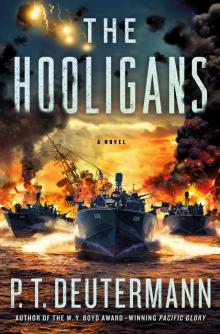 The Hooligans
The Hooligans SPIDER MOUNTAIN
SPIDER MOUNTAIN![Cold Frame [retail] Read online](http://i1.bookreadfree.com/i/03/19/cold_frame_retail_preview.jpg) Cold Frame [retail]
Cold Frame [retail] Sweepers
Sweepers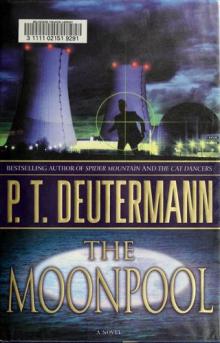 Cam - 03 - The Moonpool
Cam - 03 - The Moonpool Trial by Fire
Trial by Fire Cold Frame
Cold Frame Darkside
Darkside Cam - 04 - Nightwalkers
Cam - 04 - Nightwalkers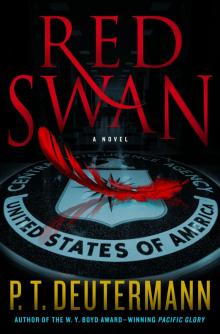 Red Swan
Red Swan The Commodore
The Commodore Hunting Season
Hunting Season The Cat Dancers
The Cat Dancers Scorpion in the Sea
Scorpion in the Sea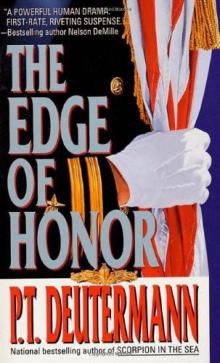 The Edge of Honor
The Edge of Honor The Cat Dancers cr-1
The Cat Dancers cr-1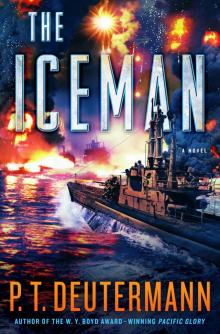 The Iceman
The Iceman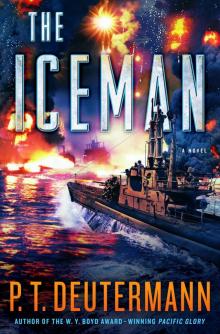 The Iceman_A Novel
The Iceman_A Novel Official Privilege
Official Privilege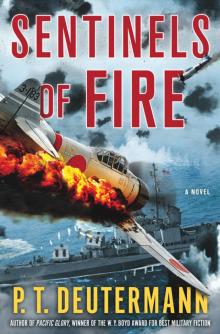 Sentinels of Fire
Sentinels of Fire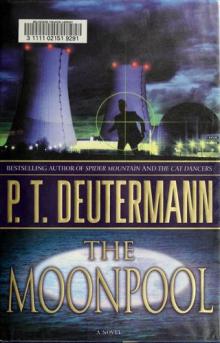 The Moonpool cr-3
The Moonpool cr-3 Nightwalkers cr-4
Nightwalkers cr-4 The Firefly
The Firefly Spider mountain cr-2
Spider mountain cr-2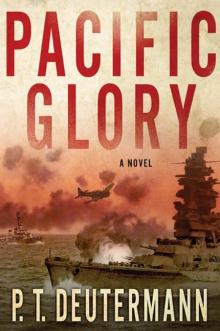 Pacific Glory
Pacific Glory The Last Man
The Last Man